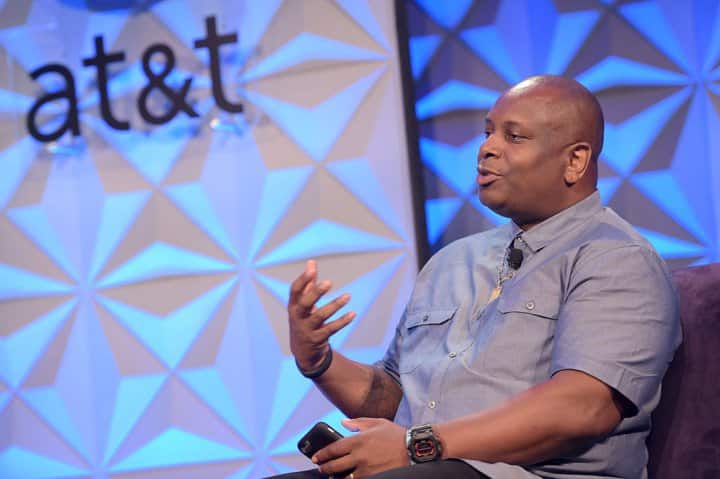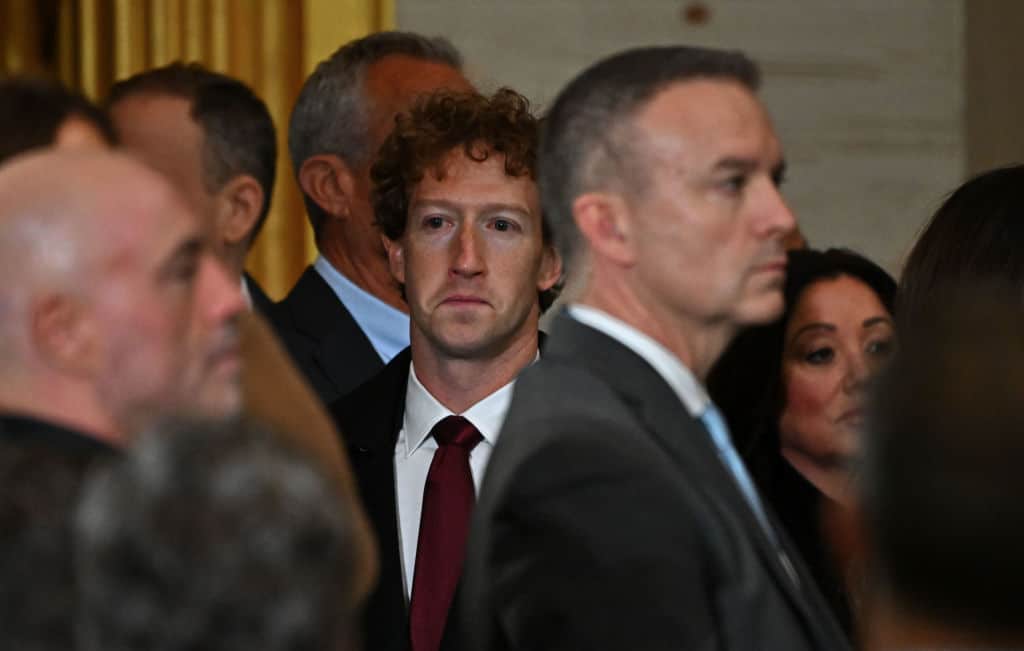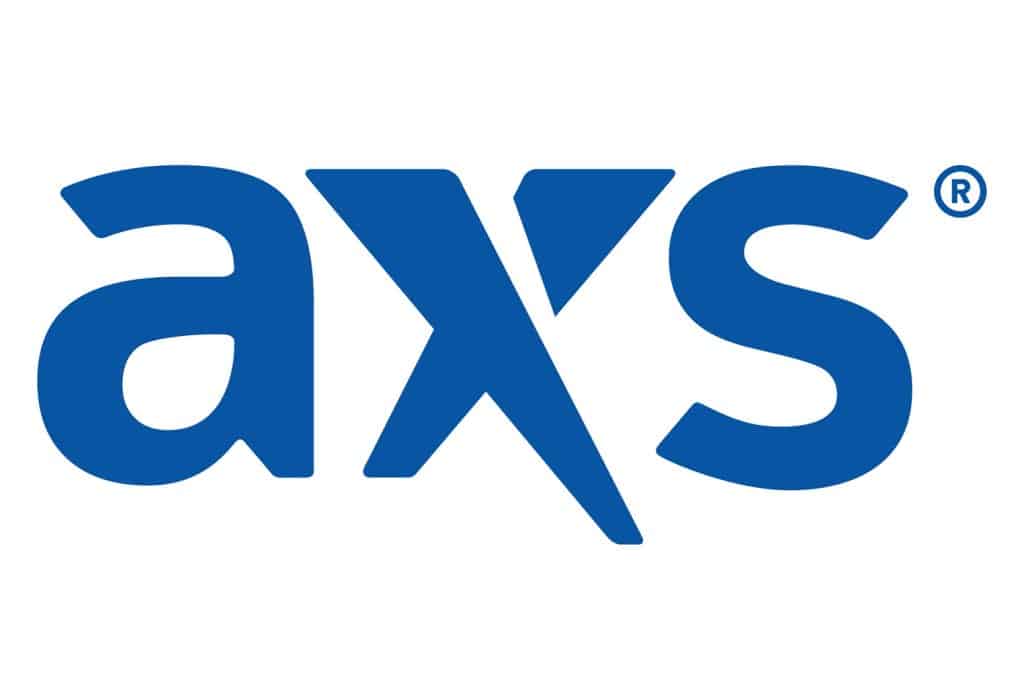tech
Page: 21
Source: Gennadiy Kravchenko / GettyHip-Hop has evolved tremendously in its 50 years of existence. Technology is one of the main factors that help the art form become the beast it is. The music genre is not just known for the hit records and other big moments that kept us talking throughout its 50-year history; it has also impacted our culture in many ways.No music genre affects how we think, dress, talk, eat, drink, and socialize like Hip-Hop does. Its impact is felt not only in the United States but also globally.But to blossom into the billion-dollar behemoth, it is today, Hip-Hop had to undergo an evolution, and technology is one of the main reasons it has become one of the most popular art forms on the planet.From how we party, consume it, reach out to friends, and conduct business to how it is covered, Hip-Hop’s longtime partnership with technology and the advancements in equipment and devices helped push Hip-Hop forward.HipHopWired decided to break down the different ways tech has been involved in the music genre and how it helped shape it into what it is today. From advancements in how music is made to how it’s played and how we enjoy it, from the gadgets your favorite rapper convinced us we just had to have to how we get our news and the latest music videos, technology plays a major key (word to DJ Khaled) in all of that.So hit the gallery below for a brief history of how tech has helped shape and continue influencing Hip-Hop.
1. How Hip-Hop’s Hits Are Made?
Source:Getty
Crafting infectious hits that stay on repeat has evolved greatly in Hip-Hop’s 50 years of existence.
Before we had drum machines, DJ Kool Herc unknowingly sparked a revolution while spinning records at a house party in 1973 when he added a second turntable to his DJ rig.
How was the significant? In his book, Hip-Hop Production: Inside the Beats, Prince Charles Alexander, professor in the Music Production and Engineering Department, explained what Kool Herc was able to accomplish with that decision.
” “[I]f you had two turntables and a mixer, you could alternate a beat between the two turntables and extend a four-bar musical pattern—you know, that hot break section in the middle of that fly record—you could extend that musical pattern to infinity,” Alexander writes.
You can listen to a recording of Herc’s innovation on the turntables here.
We jump to 1979 and the Sugar Hill Gang showed the world no DJ, no problem. They performed their iconic hit “Rappers Delight” backed by a live band allowing them and the genre to reach bigger audiences the limited DJ experience at the time couldn’t.
By 1981, with the introduction of the drum machine, Hip-Hop fully embraced technology, expanding the reach of the DJ and putting the genre on the path to commercial success. and opening the door for more rappers and producers to get in the game.
The first three machines Linn LM-1, Roland TR-808, and Oberheim DMX paved the way by providing rappers like Grandmaster Flash and The Furious Five with the tool, the DMX to craft an iconic record like “The Message” which Alexander says helped “change the sound of hip-hop—and eventually, modern music in general.”
The evolution didn’t stop there. The introduction of MIDI (Musical Instrument Digital Interface) which is described as a system or a musical language took things further by allowing all the music tech at the time to work together.
The MIDI protocol allows computers, synthesizers, controllers, sound modules, sound cards, samplers, and drum machines from different manufactures to speak with each other. A great example of a record that benefited from MIDI protocol was Salt-N-Pepa’s classic “Push It.”
Finally, we reached the Sampler, which allowed producers to take excerpts from other songs and incorporate them into new compositions. Ice Cube’s 1993 hit record, “It Was A Good Day,” which brilliantly sampled “Footprints in the Dark,” by the Isley Brothers is a great example Sampler being used to perfection.
Later on down the line “super producers” like Kanye West, Just Blaze and others would take sampling to greater heights.
Then there was Fruity Loops, which was a great tool for entry level producers, and hell, put Soulja Boy on the map, who honestly paved the way for other artists to make it big without a machine (record label) behind them.
With technology behind making music continuing to innovate and improve, we can only expect the tools to be even better, especially with the introduction of AI which could open the door for more producers and rappers.
2. How We Consume Music?
Source:Getty
No genre of music was more innovative in releasing its product than Hip-Hop; debate your aunties on that.
We have come a long way from handing out cassette tapes from car trunks, picking up bootleg CDs on Flatbush Avenue in Brooklyn, and risking our computer’s health while illegally downloading songs off Limewire and Napster.
We are now in the digital age, and Hip-Hop evolved to take advantage of it. To his credit, Mr “First To Do Everything” Soulja Boy definitely was an innovator when he took advantage of the ringtone era, specifically with “Snap music.” Lil Wayne holds the record for most ringtones sold at 5 million with his Tha Carter III banger “Lollipop.”
Ringtones aren’t very common anymore, and if you still use one, you are definitely showing your age. In their place is having your songs played on social media platforms like TikTok or Instagram Reels, which is now helping break new artists in. Whether those artists are good and have staying power is another issue.
Speaking of ringtones, JAY-Z, who was ever so innovative partnered with Samsung to have his album, Magna Carta Holy Grail available to Galaxy S3, S4 and Note II phones owners via an app.
Hova made history with move as the album went platinum out the gate, thanks to Korean tech giant purchasing 1 million copies of the album and preloading it onto an app for Samsung users listening pleasure.
The digital age has also made music streaming huge, and no genre benefits more than hip-hop—services like Spotify, Apple Music, Amazon Music, and Tidal. Speaking of Tidal, JAY-Z led a bunch of artists, including his former homie, Kanye West, Alicia Keys, his wife, Beyonce, and more, to sign onto Tidal, presenting it as an artist-friendly streaming service that would not only supply users with quality sounding music, and experiences but would also ensure artists were getting compensated adequately for their songs being streamed.
We all know how that played out, JAY-Z sold his majority stake in Tidal, and we have no clue what the other artists involved did. However, the platform is still a thing, and streaming is still massive, with artists like Drake, Kendrick Lamar, Nicki Minaj, and Megan Thee Stallion making dominating DSPs.
3. Reaching Out & Securing The Bag
Source:Getty
One area where Hip-Hop always seemed to set the trend was with communication devices. Before everyone walked around with smartphones in their pockets, your favorite rapper had a pager on their hip, plenty of quarters in their pockets, and access to the nearest payphone to reach out to someone or “secure the bag.”
Yes, we know the absolute struggle.
Before Apple and Samsung, Motorola was the king of the cellphone market.
Gordon Gekko (Wall Street) and Zack Morris (Saved By The Bell) showed up with the legendary Motorola DynaTac 8000X, sparking interest in owning a phone you could carry around with you all the time.
Unfortunately, that technology, while groundbreaking, was a bit cumbersome and not all that mobile because, honestly, who’s traveling with that big a** phone? By the 90s, the cellphone shrunk with the arrival of MicroTAC 9800x, the first flip phone on the market.
Your favorite rappers, like NaS, can be seen “using” the phone in his visual for “It Ain’t Hard To Tell” from his classic album Illmatic. The phone also appears in The Notorious B.I.G’s’ video for “Warning” alongside the Motorola Flare.
1996, the Motorola Startac came through and shook the building and was eventually one up by the sleeker Timeport. If you were a baller, you definitely also had the matching Motorola 2-Way Pager as seen in the videos for JAY-Z’s “I Just Wanna Love U (Give It 2 Me)” and Fabolous’ “Young’n (Holla Back)”.
What made the 2-Way Pager even more popular among the Hip-Hop crowd was that songs could easily turned into alerts. One of the greatest 2-Way pager alerts definitely belongs to Cadillac Tah for his banger “POV City Anthem.”
Eventually, Motorola got sidelined for Nextel and their phones, which featured a popular chirping feature allowing you to contact people via a walkie-talkie instead of wasting those precious phone minutes.
Nextel wasn’t the only phone service provider to use a walkie-talkie feature. Boost Mobile arrived on the scene with a variation of the technology and took full advantage of the popularity among the Hip-Hop community with its “Where You At” ad campaign, recruiting rappers The Game, Ludacris, and Kanye West for an epic commercial featuring the trio of Hip-Hop stars spitting over West-produced beat.
Eventually, a device called the Sidekick from Danger Research Inc., founded by three former Apple employees, was exclusively sold through T-Mobile, came through, and completely dominated the space.
The device introduced the idea of mobile internet to the world, allowing people to connect to AIM (AOL Instant Messanger) and T-Mail. The device made plenty of appearances attached to the hips of your favorite MCs, but its most prominent appearance had to be in JAY-Z’s “Excuse Me Miss” video.
Eventually, Sidekick’s dominance ended, and the Blackberry, once just a tool for Wall Street regulars, businessmen, and women, became popular in the culture. This was precisely because BBM Messenger was introduced before the iPhone ate Blackberry’s lunch and made it obsolete.
4. Covering The Culture
Source:Getty
The way Hip-Hop is covered has also drastically changed over the years. Initially, Ralph McDaniels was our ears to the streets, keeping us up to speed on what was happening in the culture through his iconic show Video Music Box.
MTV eventually came around with YO MTV Raps!, which initially only aired on MTV Europe from 1987 to the mid-90s and MTV US from August 1988 to August 1995.
Fab 5 Freddy was the original host before Dr.Dre and Ed Lover took over on weekdays, with Fab 5 Freddy holding down hosting duties on the weekends.
BET would have its own Hip-Hop-orientated shows with Rap City hosted by Big Tigger, which is blessed with some classic freestyles and BET Uncut.
Then came the internet and the “Blog Era,” with websites like Missinfo.TV, RapRadar, UHeardTheNew, Hip Hop Since 1987, 2DopeBoyz, NahRight, AllHipHop, HipHopDX, and more kept us up to date with all that’s going on in the world of Hip-Hop daily because no longer were reporters just confined to a desk, they could report on events, concerts and other shenanigans on the spot if the situation called for it.
But that has all changed again. While websites like ours are still alive and kicking, Podcasts and now Twitch streams have taken over.
The late Combat Jack, born Reggie Ossé, was the pioneer and widely considered to be Hip-Hop’s flagship podcaster with the Combat Jack Show. Other shows like the Joe Budden Podcast, Rap Radar, Drink Champs, Juan EP Is Life, and more fill the void left by Combat Jack’s passing.
Also, technology now allows anyone to turn their smartphones into podcast recording devices, so a studio isn’t even necessary. All you need are microphones and plastic cups to pour whatever you and your guest are going to be sipping during your conversation about the latest song, rap beef, or other Hip-Hop-related news.
Finally, streamers are also getting into the game thanks to platforms like Twitch and other networks that will rename nameless. Currently, Kai Cenat’s Twitch stream is becoming the go-to spot for your favorite Hip-Hop acts, or if you want some “insight” on the latest shenanigans, DJ Akademiks is also popular, unfortunately.
The game is changing, whether the old heads like it or not, so it’s time to adapt or get left behind.
In case you missed it: Suno has picked up another lawsuit against it.
Before you read any further, go to this link and listen to one or two of the songs to which GEMA licenses rights and compare them to the songs created by the generative music AI software Suno. (You may not know the songs, but you’ll get the idea either way.) They are among the works over which GEMA, the German PRO, is suing Suno. And while those examples are selected to make a point, based on significant testing of AI prompts, the similarities are remarkable.
Suno has never said whether it trained its AI software on copyrighted works, but the obvious similarities seem to suggest that it did. (Suno did not respond to a request for comment.) What are the odds that artificial intelligence would independently come up with “Mambo No. 5,” as opposed to No. 4 or No. 6, plus refer to little bits of “Monica in my life” and “Erica by my side?”
“We were surprised how obvious it was,” GEMA CEO Tobias Holzmüller tells Billboard, referring to the music Suno generated. “So we’re using the output as evidence that the original works were elements of the training data set.” That’s only part of the case: GEMA is also suing over the similarities between the AI-created songs and the originals. (While songs created entirely by AI cannot be copyrighted, they can infringe on existing works.) “If a person would claim to have written these [songs that Suno output], he would immediately be sued, and that’s what’s happening here.”
Trending on Billboard
Although the RIAA is also suing Suno, as well as Udio, this is the biggest case that involves compositions, as opposed to recordings — and it could set a precedent for the European Union. (U.S. PROs would not have the same standing to sue, since they hold different rights.) It will proceed differently from the RIAA case, which involves higher damages, and of course different laws, so Holzmüller explained the case to Billboard — as well as how it could unfold and what’s at stake. “We just want our members to be compensated,” Holzmüller says, “and we want to make sure that what comes out of the model is not blatantly plagiarizing works they have written.”
When did you start thinking about bringing a case like this?
We got the idea the moment that services like Suno and Udio hit the market and we saw how easy it was to generate music and how similar some of it sounds. Then it took us about six months to prepare the case and gather the evidence.
Your legal complaint is not yet public, so can you explain what you are suing over?
The case is based on two kinds of copyright infringement. Obviously, one is the training of the AI model on the material that our members write and the processing operations when generating output. There are a ton of legal questions about that, but I think we will be able to demonstrate without any reasonable doubt that if the output songs are so similar [to original songs] it’s unlikely that the model has not been trained on them. The other side is the output. Those songs are so close to preexisting songs, that it would constitute copyright infringement.
What’s the most important legal issue on the input side?
The text and data-mining exception in the Directive [on Copyright in the Digital Single Market, from 2019]. There is some controversy over whether this exception was intended to allow the training of AI models. Assuming that it was, it allows rights holders to opt out, and we opted out our entire membership. There could also be time and territoriality issues [in terms of where and when the original works were copied].
How does this work in terms of rights and jurisdiction?
On the basis of our membership agreement, we hold rights for reproduction and communication to the public, and in particular for use for AI purposes. As far as jurisdiction, if the infringement takes place in a given territory, you can sue there — you just have to serve the complaint in the country where the infringing company is domiciled. As a U.S. company, if you’re violating copyright in the EU, you are subject to EU jurisdiction.
In the U.S., these cases can come with statutory damages, which can run to $150,000 per work infringed in cases of willful infringement. Is there an amount you’re asking for in this complaint?
We want to stake out the principle and stop this type of infringement. There could be statutory damages, but the level has to be calculated, and there are different standards to do that, at a later stage [in the case].
Our longterm goal is to establish a system where AI companies that train their models on our members’ works seek a license from us and our members can participate in the revenues that they create. We published a licensing model earlier this year and we have had conversations with other services in the market that we want to license, but as long as there are unlicensed services, it’s hard for them to compete. This is about creating a level playing field
How have other rightsholders reacted to this case?
Nothing but support, and a lot of questions about how we did it. Especially in the indie community, there’s a sense that we can only discuss sustainable licenses if we stand up against unauthorized use.
The AI-created works you posted online as examples are extremely similar to well-known songs to which you hold rights. But I assume those didn’t come up automatically. How much did you have to experiment with different prompts to get those results?
We tried different songs, and we tried the same songs a few times and it turned out that for some songs it was a similar outcome every time and for other songs the difference in output was much greater.
These results are much more similar to the original works than what the RIAA found for its lawsuits against Suno and Udio, and I assume the lawyers on those cases worked very hard. Do you think the algorithms work differently in Germany or for German compositions?
I don’t know. We were surprised ourselves. Only a person who can explain how the model works would be able to answer that.
Tell me a bit about the model license you mentioned.
We think a sustainable license has two pillars. Rightsholders should be compensated for the use of their works in training and building a model. And when an AI creates output that competes with input [original works], a license needs to ensure that original rightsholders receive a fair share of whatever value is generated.
But how would you go about attributing the revenue from AI-created works to creators? It’s hard to tell how much an AI relies on any given work when it creates a new one.
Attribution is one of the big questions. My personal view is that we may never be able to attribute the output to specific works that have been input, so distribution can only be done by proxy or by funding ways to allow the next generation of songwriters to develop in those genres. And we think PROs should be part of the picture when we talk about licensing solutions.
What’s the next step in this case procedurally?
It will take some time until the complaint is served [to Suno in the U.S.], and then the defendant will appoint an attorney in Munich, the parties will exchange briefs, and there will be an oral hearing late this year or early next year. Potentially, once there is a decision in the regional court, it could go [to the higher court, roughly equivalent to a U.S. appellate court]. It could even go to the highest civil court or, if matters of European rights are concerned, even to the European Court of Justice [in Luxembourg].
That sounds like it’s going to take a while. Are you concerned that the legal process moves so much slower than technology?
I wish we had a quicker process to clarify these legal issues, but that shouldn’t stop us. It would be very unfortunate if this race for AI would trigger a race to the bottom in terms of protection of content for training.
HipHopWired Featured Video
Source: T3 Magazine / Getty / PS4
PS4 PlayStation Plus subscribers received bad news: In 2026, Sony will no longer offer free monthly PS4 games.
You have a year to upgrade your life and get a PS5 or PS5 Pro console because it seems Sony is moving on from the PS4 console and shifting all of its attention to the current generation.
However, all is not lost. Sony will also offer PS4 titles occasionally through PS Plus Monthly Games and Game Catalog.
“As many of our players are currently playing on PS5 and have shifted toward redeeming and accessing PS5 titles from the Monthly Games and Game Catalog benefit, PlayStation Plus is also evolving with this trend and will focus on offering PS5 titles through the Monthly Games and Game Catalog benefit starting January 2026,” a statement on the PlayStation Blog reads.
PS Plus members enjoyed the monthly benefit of PS4 and PS5 titles as part of the least expensive “Essential” tier. Those subscribed to the higher tier enjoy a rotating selection of games added to the PlayStation Plus’ Game Catalog.
Another Announcements From PlayStation
Sony did note that PS4 games that users have already added to their collection through the monthly games program will not be affected. Sony said that PC players will now get in-game bonus awards for players who log in with a PSN account on PC ports PlayStation’s first-party titles like the recently announced Marvel’s Spider-Man 2.
Yup, it looks like the PS4’s time is winding down; it was a good run for the console that blessed us with titles like Marvel’s Spider-Man, The Last of Part II, Infamous Second Son, and more.
On a more positive note, game developers can now focus on making games primarily for the PS5 console and not worry about optimizing them for the PS4.
HipHopWired Featured Video
Source: T3 Magazine / Getty / PS4
PS4 PlayStation Plus subscribers received bad news: In 2026, Sony will no longer offer free monthly PS4 games.
You have a year to upgrade your life and get a PS5 or PS5 Pro console because it seems Sony is moving on from the PS4 console and shifting all of its attention to the current generation.
However, all is not lost. Sony will also offer PS4 titles occasionally through PS Plus Monthly Games and Game Catalog.
“As many of our players are currently playing on PS5 and have shifted toward redeeming and accessing PS5 titles from the Monthly Games and Game Catalog benefit, PlayStation Plus is also evolving with this trend and will focus on offering PS5 titles through the Monthly Games and Game Catalog benefit starting January 2026,” a statement on the PlayStation Blog reads.
PS Plus members enjoyed the monthly benefit of PS4 and PS5 titles as part of the least expensive “Essential” tier. Those subscribed to the higher tier enjoy a rotating selection of games added to the PlayStation Plus’ Game Catalog.
Another Announcements From PlayStation
Sony did note that PS4 games that users have already added to their collection through the monthly games program will not be affected. Sony said that PC players will now get in-game bonus awards for players who log in with a PSN account on PC ports PlayStation’s first-party titles like the recently announced Marvel’s Spider-Man 2.
Yup, it looks like the PS4’s time is winding down; it was a good run for the console that blessed us with titles like Marvel’s Spider-Man, The Last of Part II, Infamous Second Son, and more.
On a more positive note, game developers can now focus on making games primarily for the PS5 console and not worry about optimizing them for the PS4.
HipHopWired Featured Video
CLOSE
Source: RICCARDO MILANI / Getty / Deepseek
The arrival of Deepseek, a Chinese AI app, rocked the tech world and currently has US tech bros shaking in their boots.
First things first: What the hell is Deepseek? Per CNN, Deepseek is a year-old Chinese start-up offering an open-source AI model, R1, that is close to or better than the advanced models from American tech giants. But get this: It was built for a fraction of the cost, runs on less advanced chips, and uses far less data center power.
This is a big deal because the common belief is that US tech companies would spend billions to stay ahead of the AI game, but with Deepseek, China is proving that to be not the case, and Wall Street is looking at them like, oh, word?
Deepseek’s arrival was so alarming that it scared big tech investors, with some of the biggest tech stocks taking a hit.
Per The New York Times:
The Chinese AI company DeepSeek has said it can match the abilities of cutting-edge chatbots while using a fraction of the specialized computer chips that leading AI companies rely on. That’s prompted investors to rethink the heady valuations of companies like Nvidia, whose equipment powers the most advanced AI systems, as well as the enormous investments that companies like Alphabet, Meta and OpenAI are making to build their businesses.
On Monday, the S&P 500 index fell 1.5 percent, and the tech-heavy Nasdaq dropped 3.1 percent. Nvidia was hit hard, plunging 16.9 percent and losing roughly $600 billion in market value. Falling tech stocks also dented market indexes in Europe and Japan.
Hilariously, Donald Trump recently announced a $500 billion investment in AI infrastructure called the Stargate initiative, who thinks of these names?
OpenAI, SoftBank, and Oracle will lead it. No one put it together at the time, but it would seem this announcement could have been made in anticipation of Deepseek’s arrival. Trump’s buddy, Elon Musk, also slammed it.
Deepseek isn’t being warmly welcomed stateside; the US Navy has already banned its use due to ethical and security concerns.
Welp.
It will be interesting to see how Deepseek continues to shake things up. The gallery below shows social media reactions to the AI model’s arrival.
2. Pretty much
3. Pretty much
4. Another explainer
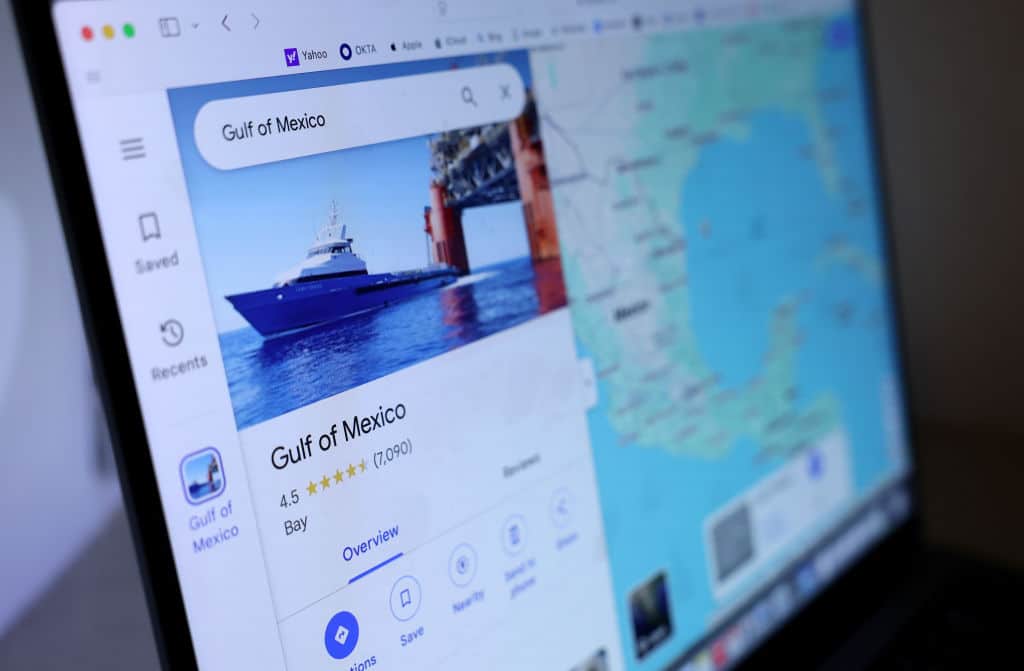
HipHopWired Featured Video
Source: Justin Sullivan / Getty / Google Maps / Gulf of America
Donald Trump’s presidency is wasting no time with absurdity, and sadly, people are bending their knees to please his ridiculousness.
Google is capitulating to Orange Mussolini and will show US Google Map users the Gulf of America on maps after Trump signed an executive order rebranding the body of water we all know as the Gulf of Mexico.
Google Maps users in Mexico will still see the Gulf of Mexico when they open the app. International users will see both names when they use Google Maps.
Google’s decision comes after Trump went on a renaming spree because he’s a petulant child in a grown man’s body.
“As directed by the President, the Gulf of Mexico will now officially be known as the Gulf of America,” the Interior Department said in a statement.
To justify the decision, the EO claims the area is an “integral asset” to the United States because it produces 14% of US crude oil, has “vibrant American fisheries,” and is “a favorite destination of American tourism.”
The tech giant, which donated $1 million to Trump’s inauguration and saw Alphabet CEO Sundar Pichai attend the celebration of America’s downfall, said it was following its longstanding policy of aligning map labeling with updates in official government databases.
The Gulf of Mexico Was Not The Only Thing Renamed By A Trump Executive Order
The Gulf of Mexico being stupidly renamed to the Gulf of America isn’t the only thing the Orange Menace renamed via an executive order. Trump reverted the Denali, North America’s tallest peak, back to Mount McKinley, reversing the move by Barack Obama in 2015 as a symbolic gesture to Alaska Natives.
We all know Trump changed the name because he can’t stand Barack Obama because he’s a very petty man.
Buckle up; this is going to be a LONG 4 years.
HipHopWired Featured Video
Rakim is responsible for changing the way rappers approach rhyming in the 1980s and is regarded as the greatest living MC of all time. Now, Rakim is moving into the fintech space via his new AI-powered Notes platform.
The God MC’s new platform, Notes, combines “music, money, and knowledge” aimed at empowering independent musicians and aiding them in their quest for financial freedom. Further, Notes exists to provide its users with financial literacy, music business education, and more to help them in their creative aims.
Among the features of the Notes platform are connections to find loans or credit providers to raise capital, AI-powered financial literacy, and entrepreneurial education content, membership-focused access, and an “Ask RA” feature, which is an AI-powered vocal rendering of Rakim that serves as your online assistant within the Notes community.
“Independent urban music artists and creators often struggle to gain financial stability despite their market impact,” Rakim shared in a statement. “With Notes, we’re building a community- and lifestyle-driven platform that combines cultural connection, technology, and empowerment to give them the tools they need to thrive.”
The Notes platform is headed up by Rakim and his longtime associate Divine, who also offered a statement of his own.
“The opportunity to partner with Rakim and build a platform like Notes, to empower and support artists and creators in the urban community who have been underserved and exploited for so long, is unprecedented,” Divine says.
While still in its early stages, Notes will continue to develop the platform to include business banking, debit cards, peer-to-peer payment services, and more.
Those interested can learn more about Notes by clicking here. At the bottom of the Notes landing page is a tab for all their socials to follow.
—
Photo: Getty
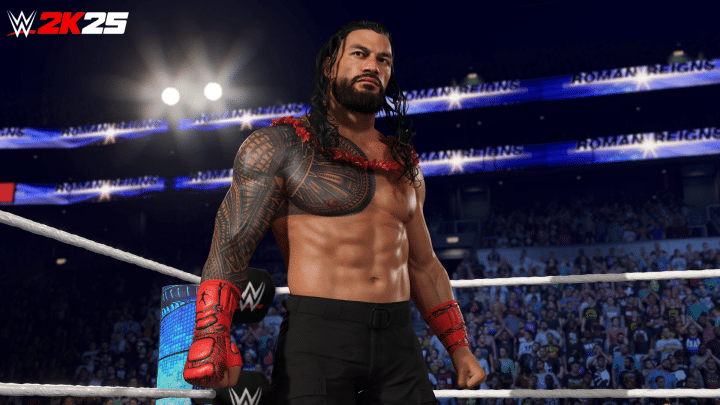
HipHopWired Featured Video
CLOSE
Source: 2K / Visual Concepts / WWE 2K25
WWE Superstar Roman Reigns gets all the acknowledgment on the cover star of WWE 2K25.
Visual Concepts’ WWE 2K video game franchise has become the undisputed champion of wrestling video games since returning from its hiatus to clean up the once extremely buggy game franchise.
With WWE 2K25, the franchise looks to continue its dominance in the virtual ring. Last night’s edition of Monday Night Raw on Netflix was the perfect time for 2 K to announce that Roman Reigns, The Original Tribal Chief and still the Head of the Table, is this year’s cover star.
The One & Only Tribal Chief Speaks On Grabbing The WWE 2K25 Cover
Reigns, looking like the real-life superhero he is, strikes a heroic pose on the cover of WWE 2K25’s Standard Edition ($69.99), which arrives on March 14. Along with his longtime manager and WWE Legend, his “Wiseman” Paul Heyman admires the true Tribal Chief.
“I am personally and professionally excited that the Original and Only Tribal Chief and the extended Anoa’i family are the focus of WWE 2K25,” said Roman Reigns. “We’ve been building toward this moment for generations, and I challenge players everywhere to show me and my Wiseman, Paul Heyman, what they’ve got, and prove they’re worthy of the attention of their Tribal Chief.”
WWE 2K25 is available for pre-order now.
Source: 2K / Visual Concepts / WWE 2K25
The Undertaker Graces The Deadman Edition of WWE 2K25
Celebrating 35 years of WWE dominance, The Undertaker takes centerstage on the cover of WWE 2K25’s Deadman Edition ($99.99), striking his signature pose that has stoked fear in many of his opponents during his decorated professional wrestling career.
The Deadman Edition includes the Standard Edition and Wyatt Sicks Pack, plus the Deadman Edition Bonus Pack, which includes thew Mattel Elite “Greatest Hits” Undertaker and Original Undertaker (’90) Persona Cards and playable Superstars, a useable Urn object, Undertaker ’95 Mask cosmetic item for The Island on PS5 and Xbox Series X|S only, and Brother Love Manager, plus a Season Pass to all five post-launch DLC character packs and 15,000 VC.
This version of the game also launches seven days before the Standard Edition.
Source: 2K / Visual Concepts / WWE 2K25
The Bloodline Gets A Cover Too
Roman Reigns also covers the game’s Bloodline Edition ($129.99). This edition features Reigns’ Solo Sikoa’s Bloodline factions, including Jey Uso, Jimmy Uso, Paul Heyman, Sami Zayn, Jacob Fatu, Tama Tonga, and Tonga Loa, interwoven into the roots and branches of the iconic Bloodline family tree. This is one of the dopest WWE 2K covers to date.
Per 2K, the Bloodline Edition will feature the Standard Edition and all bonus content included in the Deadman Edition, The Bloodline Edition includes the Ringside Pass (Season Pass plus Superstar Mega-Boost), The Rock Nation of Domination Pack, which features a Rock Nation of Domination Persona card and playable Superstar and will only be available as part of The Bloodline Edition, plus The Bloodline Edition Bonus Pack, which features Mattel Elite Series 114 Jey Uso and Mattel Elite “Greatest Hits” Roman Reigns Persona cards and playable Superstars.
For Xbox Series X|S and PS5 only, this pack includes a Family Above All Hoodie, OTC Shirt, Yeet tank Top, and Yeet Sunglasses cosmetic items for The Island, while for Steam only, it includes an additional 32,500 VC. Also included is the WrestleMania 41 Pack, which features the WrestleMania 41 Arena, two WrestleMania 41 Main Event Superstars Persona cards and playable Superstars, and a new Superstar Persona Card (TBA), which will all be available in Summer 2025.
Source: 2K / Visual Concepts / WWE 2K25
What’s New In WWE 2K25?
If you thought WWE 2K25 would be a rehash of last year’s game, think again. There are many new modes players can look forward to, like 2K Showcase: The Bloodline’s Dynasty and The Island.
Source: 2K / Visual Concepts / WWE 2K25
Per 2K:
2K Showcase: The Bloodline’s Dynasty: The all-new 2K Showcase, hosted by “The Wiseman” Paul Heyman, celebrates one of the most iconic wrestling family dynasties – The Bloodline and the extended Anoa’i family. Featuring Roman Reigns, The Rock, Yokozuna, Jacob Fatu, and more, players can relive historic showdowns or flip the script and change the outcome of select match-ups. Dream matches between members of The Bloodline and WWE Superstars and Legends offer a “what if?’ fantasy element to settle fan debates and start fresh feuds, in addition to some surprises in store.
The Island: An interactive world made up of a series of areas built around different WWE themes, The Island offers players the opportunity to explore and challenge other players, while vying to earn a WWE contract by impressing “The Original Tribal Chief” Roman Reigns. By completing quests, taking on challenges, competing in live events, earning unlockables, and upgrading and customizing MySUPERSTARS through multiple storyline chapters, The Island allows players to step outside the ropes and “Rule Beyond the Ring.” Available only on PS5® and Xbox Series X|S.
New Match Types and Improvements on Gameplay: Intergender wrestling makes its long-awaited debut in the WWE 2K franchise! WWE or player-created Superstars from the men’s and women’s divisions can now compete against each other to set up limitless matchups across all game modes. Additional features include the return of Chain Wrestling, Bloodline Rules Match, Underground Match, and new barricade diving! More details on each new match type will be shared soon.
Returning Game Modes
MyGM Online Multiplayer: Intrepid GMs can take their show on the road and challenge general managers worldwide in the enhanced MyGM for WWE 2K25, now with online multiplayer for up to four players. Players draft WWE Superstars and Legends to their weekly show’s roster and lead their brand through multiple-week seasons with a bigger selection of General Managers, cross-brand Premium Live Events, and more;
MyFACTION: The collectible, card-battle mode is back with updated features, new content, and more ways to play. Faction Wars now features new node types, and 50 new stages. World Tour replaces Proving Grounds, enabling players to travel to different locations in a non-linear approach, while additional match-type support for live events and online matches, and new community events offer enhanced replayability. New themed card packs and goals will continue to roll out regularly throughout the year with seasonal content refreshes*;
MyRISE: Players guide their MySUPERSTAR from the women’s or men’s division in a singular, multi-gender MyRISE storyline where Bayley, Kevin Owens, and other Superstars infiltrate NXT in an attempt to take control of the entire WWE. Featuring new personality choices that lead to specific storylines, as well as brawl environments, unlockable arenas, characters, useable objects, and more, plus new ally storylines involving Jey Uso, Bianca Belair, Seth Rollins, and other WWE Superstars;
Universe: WWE 2 K’s sandbox mode receives new upgrades to give players greater control over their Universe experience, including the long-awaited return of Promos! The new system includes multiple promo types and outcomes with new cutscenes and branching choices;
Creation Suite: The hallmark of the WWE 2K franchise, the best-in-class, most detailed and robust creation suite remains one of the driving forces behind players’ self-expression as they design their own custom Superstars, GMs, referees, arenas, entrances, move sets, championships, crowd signs, and more.
1. WWE 2K25
Source:WWE 2K25
WWE 2K25 wwe,roman reigns,wwe 2k25,the undertaker
2. WWE 2K25
Source:WWE 2K25
WWE 2K25 wwe,roman reigns,wwe 2k25,the undertaker
3. WWE 2K25
Source:WWE 2K25
WWE 2K25 wwe,roman reigns,wwe 2k25,the undertaker
4. WWE 2K25
Source:WWE 2K25
WWE 2K25 wwe,roman reigns,wwe 2k25,the undertaker
5. WWE 2K25
Source:WWE 2K25
WWE 2K25 wwe,roman reigns,wwe 2k25,the undertaker
AXS, AEG’s ticketing and event access platform, is launching a new global biometric authentication feature for its mobile app across all smart phone devices. The technology marks the first time a ticketing smart phone app utilizes biometric security features, such as fingerprint or facial recognition, to provide users with a secure way to access their […]

 State Champ Radio
State Champ Radio 